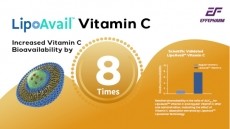Vitamin D an “effective adjunctive” for blood glucose control in diabetic patients, says meta-analysis

The benefits of vitamin D supplementation spanned across significantly lower serum fasting blood glucose (FBG) levels, as well as lower glycated haemoglobin (HbA1c), fasting insulin levels, and insulin resistance (HOMA-IR), said the researchers from China.
The effects were “especially prominent” when vitamin D was given in a short-term, high dosage fashion to patients with vitamin D deficiency.
“Our results show that reductions in FBG, HbA1c and HOMA-IR were particularly prominent when vitamin D was given over the short term.
“In the current study, the average dose of vitamin D supplements used in the short-term group was higher than that in the long-term group (4,700 IU/d versus 3,993 IU/d),” the researchers wrote in the findings published in Diabetes, Obesity, and Metabolism.
However, they also cautioned that the supplementation of vitamin D beyond the physiological dose may be harmful.
Diabetic patients who are overweight or have an HbA1c of at least eight per cent at baseline also stand to benefit more from high vitamin D dosage.
The meta-analysis was conducted by researchers from the National Clinical Research Center for Metabolic Diseases housed within The Second Xiangya Hospital of Central South University, Changsha.
A total of 39 RCTs involving 2,982 subjects were included in this meta-analysis.
These RCTs were obtained from PubMed, EMBASE, Web of Science and the Cochrane Library.
To be selected, these RCTs were conducted on type II diabetic patients who were at least 18 years old, and lasted at least two months, with either daily or weekly vitamin D supplementation.
These RCTs also compared the effects of vitamin D versus placebo and measured outcomes on fasting blood glucose, HbA1c, fasting insulin levels, and insulin resistance.
Most of the RCTs looked at the use of vitamin D3 and cholecalciferol, with a few using calcirol and ergocalciferol.
The researchers explained that vitamin D supplementation, by significantly increasing serum vitamin D levels, could activate vitamin D receptors to increase insulin receptor expression.
This in turn improves insulin sensitivity.
“Furthermore, vitamin D's anti-inflammatory and immunomodulatory effects may inhibit the activation of nuclear factor kappa B, thus relieving islet dysfunction and improving glucose metabolism…
“The current study suggests that vitamin D supplementation could be an effective adjunctive intervention for glycaemic control in T2D patients and provides accurate guidance for the application of vitamin D supplementation in clinical populations,” they concluded.
Source: Diabetes, Obesity, and Metabolism
Efficacy of vitamin D supplementation on glycaemic control in type 2 diabetes: An updated systematic review and meta-analysis of randomized controlled trials
https://doi.org/10.1111/dom.15941
Authors: Wei Chen, Lili Liu, Fang Hu



















